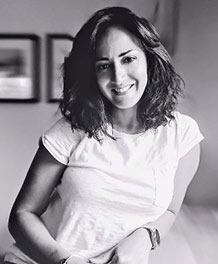Dr Rasha Rezk
Royal Academy of Engineering Enterprise Fellow
Biography
Dr. Rasha Rezk is a materials engineer innovating biological applications with microfluidic technologies. Her research at the University of York, supported by the BBSRC ICURe programme (recommended for Exploit), has led to the development of the ForCell platform, a novel mechanoporation system leveraging cell mechanics for advanced therapeutics. ForCell enables non-viral, mechanical delivery of diverse cargo into various cell types, with significant potential for advancing drug discovery and cellular therapeutics. Dr. Rezk holds a PhD from the University of Cambridge, where she also held a prestigious Independent Research Fellowship. Rasha, a 2024 graduate of the highly competitive Creation Destruction Lab (Advanced Therapies, Global Stream), is also a Royal Academy of Engineering Enterprise Fellow.
Research
Projects
A Novel Microfluidic Platform for Understanding the Biomechanics of Blood Stem Cells
This project investigates the critical link between biomechanics and gene expression in both healthy and malignant blood tissue. We propose that mechanical force can be leveraged to selectively eliminate mutated blood cells. Using our proprietary microfluidics technology, we're examining leukemia's sensitivity to force to uncover novel insights that could accelerate the development of highly innovative therapies targeting blood cancers.
Developing a Tuneable Mechanical Platform for Genome Editing
Current gene therapy often relies on removing cells from the body and using virus-based tools to correct genetic material before returning them to the patient. While effective for disorders like sickle cell disease and severe combined immunodeficiency (SCID), these methods have limitations. Our research focuses on mechanical cell deformation, which generates transient perturbations in the cell's membrane, enabling safe and economical cargo delivery for drug discovery and genome editing. Utilizing our proprietary microfluidics technology, we can deliver a wide variety of cargo into target cells. We're investigating whether our mechanoporation system offers higher efficiency than standard electroporation and viral methods.
A key advantage of our technology is its versatility: we can tailor forces to accommodate diverse cell types (regardless of size or mechanical properties) and apply quantifiable forces, from mild deformation to cell lysis. This precise control and ability to tune forces to deform the cell membrane and/or its nucleus opens exciting new avenues for genome editing in medicine, biology, biomanufacturing, and plant synthetic biology.
Current opportunities
Calling all ambitious students! If you're passionate about revolutionizing advanced drug delivery through interdisciplinary research, I encourage you to get in touch. We have exciting openings for MSc and integrated Master's research projects. You can find our specific MSc in Biomedical Science (by research): "Revolutionising genome editing using novel tuneable microfluidics technology" listed on FindAPhD.com. Don't hesitate to discuss your potential project with us!

